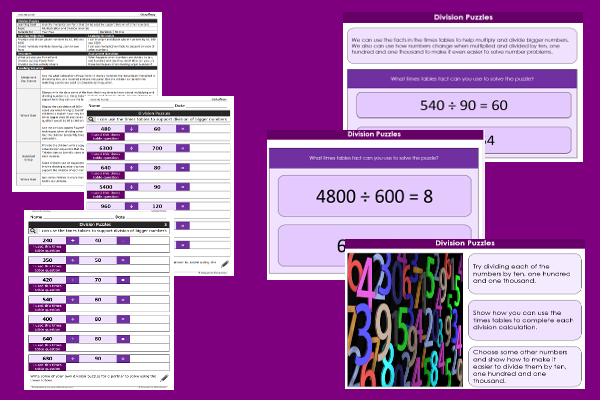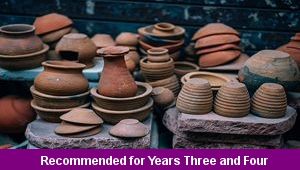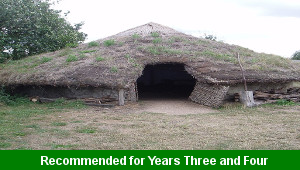Lesson Five – Division Puzzles

This maths teaching pack for Key Stage Two gets the children to identify and illustrate some of the different multiplication number facts that can be used to support division of other numbers.
The class can explain and illustrate how to use some of the different facts in the multiplication times tables when breaking down a calculation into smaller steps.
Download this teaching pack including a lesson plan, classroom activities and an interactive presentation to teach the children to identify and illustrate some of the different multiplication number facts that can be used to support division of other numbers
Activities in this teaching pack include a set of differentiated worksheets to select and record multiplication times tables facts that can be used to support division of other numbers to produce the matching quotients.
The interactive presentation gets the children to explain how to use facts in the multiplication times tables to support division of larger numbers to produce the matching quotients.
This lesson is part of a maths scheme of work to get the children to explore and illustrate the properties of numbers that can support multiplication calculations including prime, square and cube numbers and multiplication facts that can be used to derive division quotients. There are teaching activities for shared learning, differentiated worksheets to support independent learning and interactive presentations to introduce concepts and key skills.
-

Cities, Towns and Villages
Research and present the history of a range of different buildings and people that are part of the local community using a school exhibition
-

Recycling
Research and present some of the benefits and disadvantages that can be produced when recycling different materials at home and in school
-

Viking Pots
Develop and refine a range of different art and design techniques when working with clay to make pots that represent Viking culture and traditions
-

Bronze Age
Research and illustrate how life in Britain developed and changed during the Bronze Age including the growth of communities and trade
